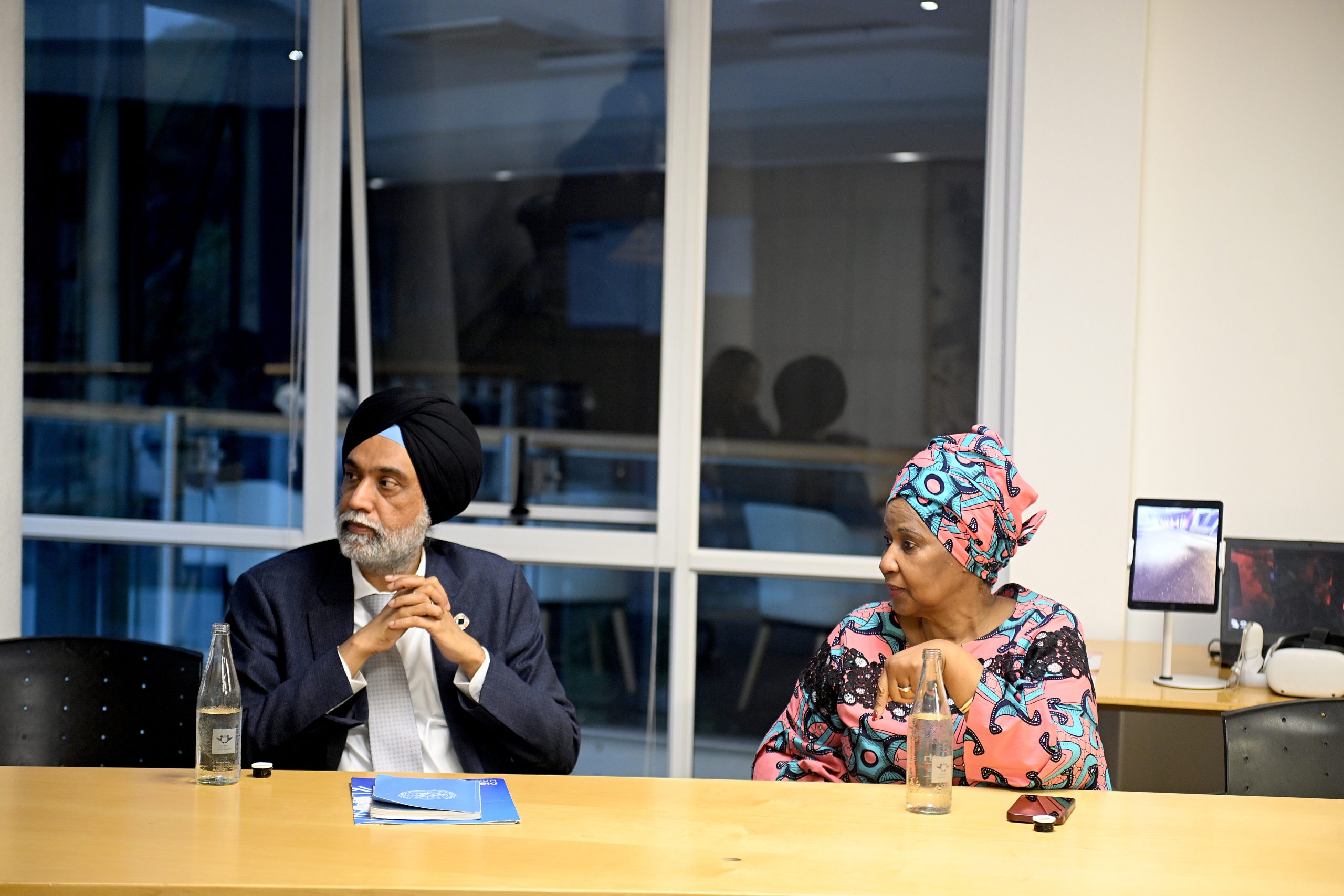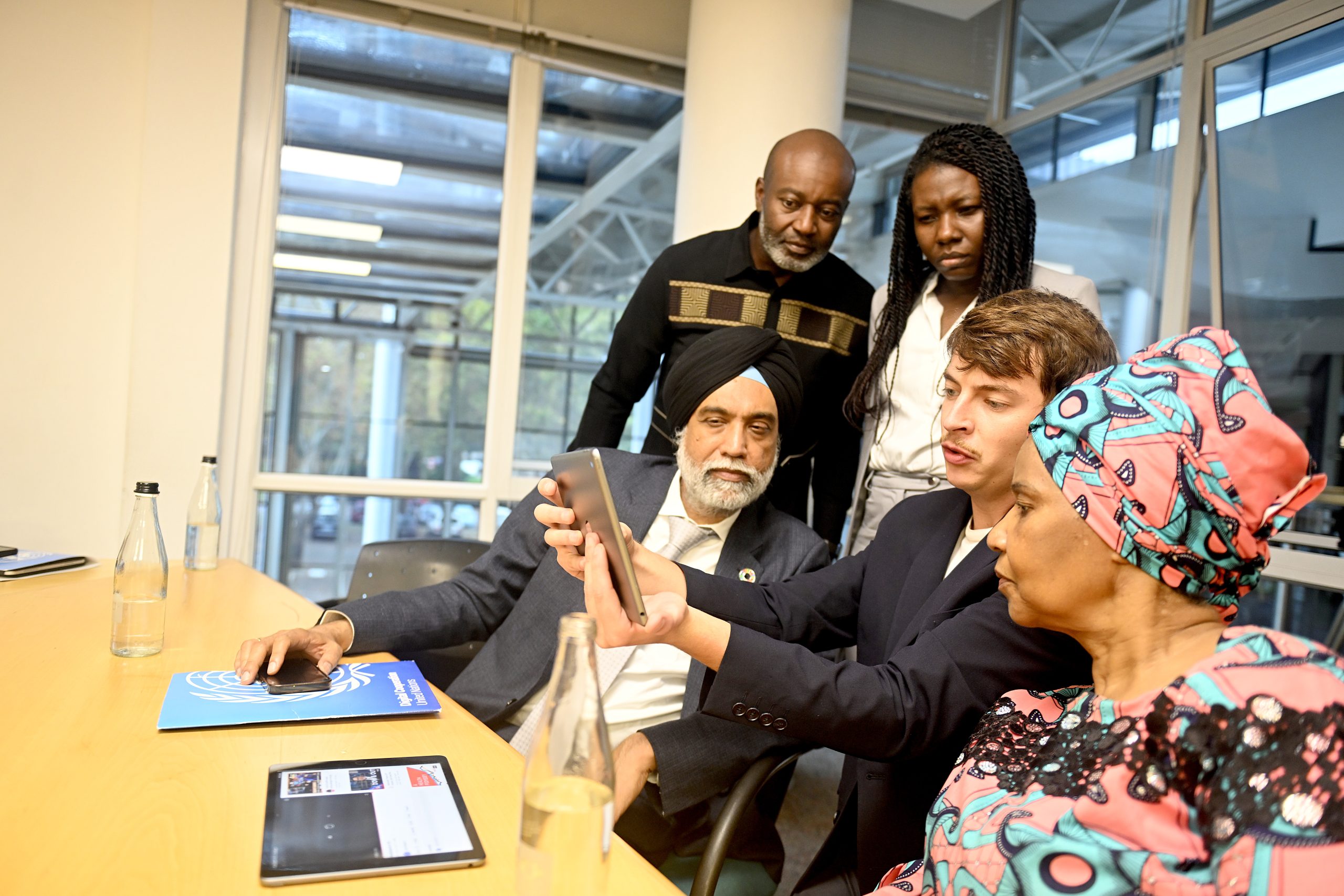On Tuesday, 8 April 2025, the University of Johannesburg (UJ) held a landmark session on digital transformation and emerging technologies within Africa, demonstrating its pioneering role in a critical sector that continues to redefine the way people work, live and interact.
The event, organised on behalf of the United Nations Office for Digital and Emerging Technologies (ODET), featured a meeting between two distinguished figures: UJ Chancellor Dr Phumzile Mlambo-Ngcuka and Mr. Amandeep Gill, Under-Secretary-General for Digital and Emerging Technologies. Dr Mlambo-Ngquka is the former United Nations Under-Secretary-General and Executive Director of UN Women. The purpose of the event was to explore synergies between the UN’s digital cooperation agenda and UJ, through its remarkable work in technology and innovation.

UJ, as the pioneering university in digital and technological innovations, was the preferred venue to highlight the critical role that higher institutions of higher learning and other organisations can play in these fields. The UN delegation included some of its prominent figures such as Tobi Kasali (Senior Analyst from ODET), His Excellency Nelson Muffuh (UN Resident Coordinator, SA) Dr. Kefiloe Masiteng (Head of the Resident Coordinator’s Office), and Mr. Ropafadzo Chiradza (Social Media Associate from the United Nations Information Centre).cUJ was proudly represented by faculty members, including Prof Bvuma, Director for the School of Consumer Intelligence and Information Systems, as well as Director of the Institute for Artificial Intelligent Systems, Prof Babu Sena Paul and Prof Mpho Primus the Co-Director.
The event provided an ideal forum for strategic discussions and collaboration opportunities. A highlight of the event was a virtual tour of The Metaverse Research Unit at the Institute for Artificial Intelligence and Systems (IAIS), which showcased their cutting-edge work on virtual reality (VR) applications in education, healthcare, and the arts. A standout feature was the Sophiatown VR project, an immersive experience designed to preserve the memory and legacy of Sophiatown, allowing users to walk its historic streets, engage with its vibrant culture, and experience its music and people.

Professor Stella Bvuma, Director at the Consumer Intelligence & Information Systems, said such an experience allows people to connect with the rich history and vibrant culture of this iconic community. “More than just a technological innovation, the project is a cultural journey through time that reflects UJ’s commitment to the Fourth Industrial Revolution (4IR). This is designed to showcase the university’s innovation ecosystem. This part of the visit underscored UJ’s contributions to digital transformation by giving attendees a firsthand glimpse of the cutting-edge research and development initiatives taking place at the institution.”
The session provided valuable insights into how UJ is actively contributing to shaping Africa’s technological landscape, aligning with global digital and emerging technology goals. “Through this engagement, UJ not only showcased its leadership and innovation in technology within South Africa but also solidified its role as a crucial partner for global entities like the United Nations in promoting digital evolution and cooperation.”

Dr Mlambo-Ngcuka was impressed with UJ’s progress in the digital and technology space. “This event reflects UJ’s commitment to societal impact, focused on harnessing technology to address pressing challenges and create opportunities for growth and development across Africa,” she said.
“UJ is intentional on its key international collaborations and driving forward-thinking research, UJ continues to lead the way in constructing a vibrant and technology-forward future for the continent.”



